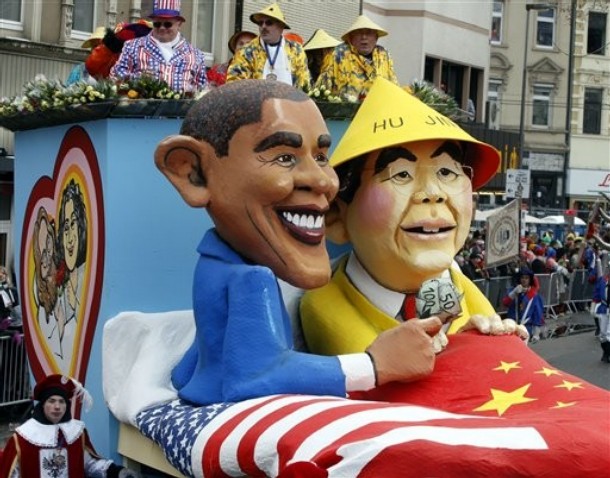
John Mearsheimer has an interesting lecture (pdf) on the emerging competition between the U.S. and China:
I expect China to act the way the United States has acted over its long history. Specifically, I believe that China will try to dominate the Asia-Pacific region much as the United States dominates the Western Hemisphere. For good strategic reasons, China will seek to maximize the power gap between itself and potentially dangerous neighbors like India, Japan and Russia. China will want to make sure that it is so powerful that no state in Asia has the wherewithal to threaten it. It is unlikely that China will pursue military superiority so that it can go on the warpath and conquer other countries in the region, although that is always a possibility. Instead, it is more likely that Beijing will want to dictate the boundaries of acceptable behavior to neighboring countries, much the way the United States makes it clear to other states in the Americas that it is the boss. Gaining regional hegemony, I might add, is probably the only way that China will get Taiwan back.A much more powerful China can also be expected to try to push the United States out of the Pacific-Asia region, much the way the United States pushed the European great powers out of the Western Hemisphere in the nineteenth century. We should expect China to come up with its own version of the Monroe Doctrine, as Imperial Japan did in the 1930s....
And what is the likely American response if China attempts to dominate Asia? It is crystal clear from the historical record that the United States does not tolerate peer competitors. As it demonstrated over the course of the twentieth century, it is determined to remain the worldâ??s only regional hegemon. Therefore, the United States can be expected to go to great lengths to contain China and ultimately weaken it to the point where it is no longer a threat to rule the roost in Asia. In essence, the United States is likely to act toward China similar to the way it behaved toward the Soviet Union during the Cold War.
I think there's a lot to this analysis, particularly the inevitability of some kind of Cold War-style standoff, albeit one that's less intense than the conflict with the Soviet Union. But unlike the Cold War, there's much less of an ideological component to U.S.-China security competition. And if China can't be portrayed as revolutionary power bent on global domination, it will be a lot harder for Washington to justify the costs and risks of an Asian containment scheme.
[Hat tip: Stephen Walt]
(AP Photo)



